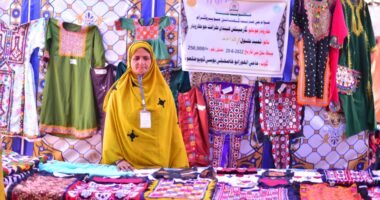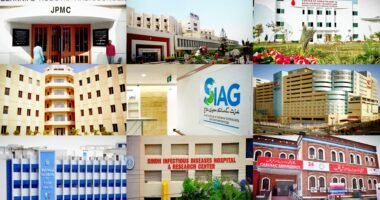
The Sindh government has unveiled a comprehensive set of initiatives aimed at addressing the growing challenges posed by climate change, particularly in the agricultural sector. The initiatives, which are part of the Sindh Water and Agricultural Transformation (SWAT) Project, include providing awareness and training to farmers, constructing new watercourses, and introducing innovative measures such as smart subsidies, solar lift pumping, laser land levelling, crop reporting, and digitising agricultural marketing.
An important meeting to discuss the project was chaired by Sindh’s Minister for Agriculture, Sardar Muhammad Bux Mahar, on Wednesday. The meeting included key officials such as Secretary Agriculture Sohail Ahmed Qureshi, Project Director Dr. Liaquat Ali Bhutto, and representatives from the Sindh Seed Corporation, among others. The agriculture secretary provided a detailed briefing on the SWAT project, highlighting its importance in addressing climate change and enhancing agricultural productivity.
Key Features of the Sindh Water and Agricultural Transformation (SWAT) Project
- Training and Awareness for Farmers: The project will reach 14,575 farmers, including women farm workers, across nine districts. The training will focus on efficient water use, optimal fertiliser application, improving agricultural productivity, and better seed usage.
- Smart Subsidies and Financial Assistance: The government will provide smart subsidies for 100,000 acres of land, targeting sustainable agricultural practices. This includes subsidies for pulses, vegetables, oilseeds, and orchards on 1,000 acres. In addition, drip irrigation systems will be installed on 900 acres to conserve water.
- Watercourse Construction and Lining: The SWAT project will focus on improving water management, with the construction of 185 new watercourses and the lining of 500 existing watercourses to reduce water wastage and improve irrigation efficiency.
- Adopting Climate-Smart Agriculture: In light of recurring climate-related events such as droughts, floods, and water scarcity, Minister Mahar stressed the need for climate-smart agriculture. This includes promoting drought-resistant crops, enhancing water storage capacity, and implementing modern irrigation technologies like drip irrigation and solar pumping.
- Financial Support for Modern Agricultural Equipment: The provincial government is extending financial assistance to farmers for purchasing modern agricultural tools, seeds, and fertilisers. This initiative aims to boost productivity and support sustainable agricultural practices.
- Project Completion Timeline: The Sindh Water and Agricultural Transformation Project is expected to be completed by December 2028.
Importance of Climate-Smart Agriculture
Minister Mahar highlighted that climate change-induced challenges such as floods, droughts, and water scarcity have severely affected agriculture in the province. To address these issues, he emphasized the importance of adopting climate-resilient farming techniques, improving water efficiency, and ensuring that agricultural practices align with sustainable environmental goals.
The provincial government has already distributed Rs 19 billion in subsidies to farmers impacted by recent floods and rains, providing immediate relief to those affected by climate-induced disasters.
Districts Benefiting from the SWAT Project
The SWAT project will initially be launched in following districts of Sindh, including:
- Ghotki
- Sukkur
- Sanghar
- Mirpurkhas
- Badin
- Tando Muhammad Khan
- Hyderabad
By targeting these districts, the Sindh government aims to promote sustainable farming practices and improve water management in areas most affected by climate change.
With the SWAT project, the Sindh government hopes to transform the agricultural landscape of the province, making it more resilient to climate change and better equipped to meet the needs of its farming community.












